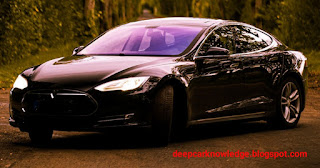Tesla Electric Cars Industry review | electronic cars
Tesla has revolutionized the way we think about transportation. With their electric cars, they have taken the world by storm, and for good reason. Their cars are not only fast and stylish but also environmentally friendly. In this blog post, we'll take a closer look at Tesla's electric cars, their journey to becoming a leading brand in sustainable transportation, and their impact on the automotive industry.
The Early Years
Tesla was founded in 2003 by a group of engineers who wanted to bring electric cars to the mass market. They were initially inspired by a desire to reduce the world's dependence on oil and reduce greenhouse gas emissions.
Their first product was the Tesla Roadster, which was introduced in 2008.
The Roadster was a sports car that could reach 60 mph in just 3.7 seconds and had a range of up to 245 miles on a single charge. It was a game-changer in the electric car industry and quickly gained a following among car enthusiasts.
In 2012, Tesla introduced its second model, the Model S sedan. This car was even more groundbreaking than the Roadster. It was the first electric car with a range of over 200 miles and had a sleek design that had never been seen before in the electric car industry. The Model S quickly became a status symbol and was well-received by consumers and critics alike.
Tesla's Success and Challenges
Over the years, Tesla has faced several challenges, including production problems, financial issues, and a lack of infrastructure for charging electric cars. Nevertheless, the company has managed to overcome many of these obstacles and has become a leading brand in sustainable transportation.
One of the keys to Tesla's success is its dedication to innovation. Tesla has continuously pushed the boundaries of what's possible with electric cars. Their cars have advanced features such as advanced autopilot, self-driving technology, over-the-air software updates, and an industry-leading infotainment system.
Another factor that sets Tesla apart is its vertical integration. Tesla produces many of the components of its cars in-house, including batteries, motors, and chargers. This allows them to have better control over the quality of their cars and reduce costs.
Tesla has also made significant strides in infrastructure development. They have built a vast network of Superchargers around the world, which allows Tesla owners to travel long distances without worrying about running out of charge. They have also developed partnerships with other companies to install charging stations at hotels, restaurants, and other public places.
Tesla's Impact on the Automotive Industry
Tesla has had a significant impact on the automotive industry, inspiring other car manufacturers to invest in electric car technology. Their success has shown that there is a real demand for electric cars and has forced other car companies to take notice.
Today, almost every major car manufacturer has at least one electric car in its lineup. Some are even aiming to go fully electric in the coming years. This shift towards sustainable transportation would not have been possible without Tesla's influence.
Tesla has also disrupted the traditional dealership model. Instead of selling their cars through third-party dealerships, Tesla sells its cars directly to customers. This allows them to have better control over the customer experience and reduce the middleman markup on their cars.
What's Next for Tesla?
Tesla's success does not mean that they are content to rest on their laurels. The company has ambitious plans for the future, including the production of a semi-truck, an electric pickup truck, and a new roadster. They are also planning to expand their production capacity and open new factories around the world.
One of the most significant challenges facing Tesla is the shift towards renewable energy. As more and more countries and businesses commit to reducing their carbon footprint, the demand for electric cars will continue to grow. However, this also means that there will be pressure on companies like Tesla to ensure that their production processes are sustainable.
Conclusion
Tesla's electric cars have proven that sustainable transportation is not only possible but also desirable. They have disrupted the traditional automotive industry and inspired other manufacturers to invest in electric car technology. Tesla's success shows that innovation and dedication to sustainability can go hand in hand. As we enter a new era of transportation, it's exciting to see what Tesla will do next.





Comments
Post a Comment